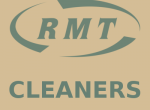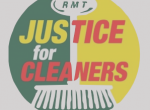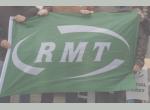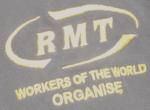First RMT briefing on the McNulty Review of the Railways, 27 May 2011
Background
The McNulty review Realising the Potential of GB Rail; Report of the Rail Value for Money Study was published on 19th May 2011. The review was commissioned by the last Government and continued by the current Government to “improve value for money to passengers and the taxpayer.”
Privatisation has resulted in a massive increase in costs
Three times as expensive
McNulty has examined “unit costs” (which means costs per passenger km), since privatisation for the period 1996/7 to 2009/10. McNulty says unit costs have not changed despite a 59% increase in passenger journeys (caused by economic growth rather than any magical effect of privatisation) during this period. McNulty believes the failure to reduce unit costs has resulted in annual rail industry expenditure increasing by 60% from £4bn in 1996 to £11bn in today’s prices. In the same period annual subsidy has increased from just over £1bn a year to £4.6bn a year.
30% less efficient
The report says that compared to other privatised industries (water, telecoms and electricity) and four comparator countries ((France, Netherland, Sweden, and Switzerland), Great Britain’s railways are 30% less efficient and need to make a 30% reduction in unit costs by 2019.
McNulty argues this target can be achieved by implementing his recommendations, increasing train utilisation (the number of passengers per train) and through Network Rail making a total of 31% efficiency savings between 2009 - 2019.
Fragmentation
McNulty tacitly acknowledges that the primary cause of high costs are a result of the break up and privatisation of the railways. He argues costs have risen due to “barriers to efficiency” which include fragmentation with “many players and interfaces”. This has meant for example that “the incentives of Network Rail and TOCs are almost completely different” where “commercial interests appear to stand in the way of co-operation between TOC’s and between them and Network Rail”. The effects of this fragmentation have been made worse by the “complex legal and contractual framework” which has “adverse effects on relationships.”
Fragmentation has also meant “a whole industry approach is difficult to apply” with different companies “more inclined to follow approaches which maximise positions in their own silo,” which has led to “very short term views in an industry that requires long term planning.” This has meant the industry “lacks best practice in a number of areas which are key drivers of costs” and “the lack of leadership has contributed to the problems in relationship and culture.”
Right diagnosis, wrong medicine
The union has long argued that our railways are more expensive than those in Europe because of the breakup and privatisation of the industry. What was once a single unified railway has been broken up into scores of competing companies. Independent studies have argued that this has caused the industry to suffer from “cash leakages” caused by high private sector borrowing costs, numerous interfaces and dividend payments. These cash leakages are in the region of £1 billion a year – the same level of savings McNulty thinks the industry can achieve by adopting his reforms.
It would seem obvious then that in light of this evidence and McNulty’s own analysis, the Government should begin the process of reintegrating the industry under public ownership. For example Network Rail’s decision to bring rail maintenance back in house on a not for dividend basis has saved the industry £400m a year, half of the total savings McNulty is proposing now. It follows that further reintegration and the removal of dividend payments would achieve significant savings. This is also supported by all the evidence that railways in Europe are cheaper for the taxpayer and fare payer because in the main they are in public ownership and less fragmented.
Yet because both McNulty (advised by consultants from the privatised rail industry) and the Government are ideologically wedded to privatisation, they have ruled out reintegrating the railways under public ownership. The report instead proposes a series of measures which will entrench and extend fragmentation and privatisation. These can be summarised as follows:
Railtrack 2 - more fragmentation
Having identified fragmentation and the pursuit of self interest as a major barrier to efficiency McNulty then proposes this be extended in Network Rail. He calls for decentralisation which “might reflect twelve routes (the nine existing routes, plus Merseyside, Wales and Northern)” and argues “there is no reason why all of the devolved infrastructure managers need to be controlled by a single company”. On this basis “consideration should be given to the central NR structure being more like a holding company, with route-level concessions operated by its subsidiaries or managed by other organisations.”
Pressing for re-introducing the pursuit of profit in signalling operations and rail maintenance, McNulty says “it is vitally important that the infrastructure managers and the train operators have a commercial interest in each other’s cost and revenues”. This could be achieved through “cost and revenue sharing” (alarmingly with much, if not all of NR’s subsidy going to the TOC’s and then fed back to NR through track access charges),” joint targets between NR and train operators”, “joint ventures and alliances” and by “full vertical integration through a concession of infrastructure management and train operations combined.”
A pilot vertical integration in Anglia is proposed for 2014 and also two joint ventures at the same time. Cost and revenue sharing, and joint targets between Network Rail and the TOCs should be “the minimum for all new franchises”. If McNulty’s recommendations are adopted, most franchises and Network Rail regions will be operated on a joint revenue and cost basis within the next five years.
McNulty’s proposals to fragment and sell of Network Rail are further proof his report is driven by the dogma of privatisation rather than an assessment of the facts. In his report McNulty has to admit that “NR has made considerable progress since its inception.” and “NR operating and maintenance...costs are now at the same level as 1996/7”, and also “costs have returned to normal levels overall.” while “maintenance costs in particular have reduced considerably.”
Which begs the question if such improvements are being made why now advocate the breakup of the company?
Less staff more risks
Another major barrier to efficiency identified by McNulty is staff costs and efficiency. McNulty says staff costs have risen from £2.56bn to £3.85bn - an increase of 50%. Even a cursory examination reveals this part of the report is riddled with inaccuracies and misinformation.
McNulty ignores the fact that due to economic growth over most of the period of the study passenger journeys have gone up by 59% , passenger kms by 50% and passenger revenues per member of staff by 56%. In short increases in staff productivity have more than offset increases in staff costs. In addition he omits to mention that unit wage costs for the whole economy have actually risen faster than on the railway.
The report is guilty of even more blatant misinformation by choosing to remove figures from the summary report provided to the media and politicians which shows that UK rail workers are ranked the fourth most productive of all European rail companies. The report also falsley states “working practices and agreements within the industry have not undergone any significant changes for many years if not decades” - ignoring the fact that virtually every grade has undergone a restructuring of terms and conditions since privatisation.
The report makes it clear that rail workers must pay for the failure of privatisation with their jobs, with 35% of McNulty’s total proposed savings being achieved through reducing staff costs.
Numerous grades are threatened with widespread job losses. Coupled with the remit of the new National Safety Task Force (NSTF) to “discourage undue risk aversion and excessive double checking” the industry is faced with massive job cuts and increased safety risks.
Modern signalling systems and the acceleration of new operating centres will lead to “staff and cost savings” while station staff are also lined up for massive jobs losses with the TOC’s urged to “review station staffing as a matter of priority.” There will be proposals to make it easier to close ticket offices while “extending the range of ticketing retail locations” (e.g. newsagents).
Driver Only Operation (DOO) is described as “a safe method of operation” and that “the default position for all services on the GB rail network should be DOO, with a second member of train crew only being provided where there is a commercial, technical or other imperative”.
Despite contributing to Network Rail’s “considerable progress,” maintenance and renewals staff will suffer further job losses as their work will only be applied to “critical, as opposed to noncritical, assets, this reducing the number of inspections and associated costs”, whilst “good practice “asset management approaches...will be identifying and removing activities that do not add value”. This could also “increase the period between maintenance, as less time needs to be factored in to cope with decision delays, enabling a reduction in staffing and material costs”.
The reports also makes clear that “automating track inspection and using components that require less maintenance...should reduce staff costs.”
Less pay, more hours
Those who keep their jobs will be expected to work more hours for less pay. The report is clear,
“The expectation that salaries, at all levels of the railway industry, will increase ahead of inflation has to end. Indeed, with many passengers and taxpayers having their salaries frozen at present, even the granting of inflation-level increases must be questioned.”
“The overall trend to reduce continually the length of the working day and the working week is unsustainable, and the industry needs to negotiate changes to terms of employment that currently limit flexibility and productivity. A starting point would be to review the salaries and employment terms for new entrants to the industry”.
Less regulation, more profiteering
The study argues that there is too much government involvement in the industry and even more power should be passed to the private sector - “in broad principle, Government should determine what the rail industry should deliver, and the industry should determine how this is to be achieved.”
Therefore there should be “longer, less prescriptive franchises” which give TOCs “greater commercial freedom” and “allow TOCs to react to the market.” The greater freedom for the TOCs will be enhanced by transferring the regulation of franchises away from the government to the unaccountable quango of the Office of Rail Regulation. A key plank of the commercial freedom for TOC’s is the proposed removal of Schedule 17 arrangements which regulate ticket office opening hours and have allowed passengers and workers to challenge ticket office closures or reductions in opening hours.
In contrast that part of the industry that has contributed to a massive escalation of costs, the Rolling Stock Leasing companies are left untouched. Despite the ROSCOs sucking out billions of pounds from the industry in dividend payments alone the report merely urges the government to “explore the possibility of establishing strategic partnerships with the ROSCOs to ensure that the re-lease rates are demonstrably value for money”.
Paying more for less
McNulty makes great play of the fact that his report does not recommend cuts in rail services or increases in the overall fare revenues. Yet the reality is that if implemented the report will create the conditions for significant fare rises and cuts in services and further entrench the business railway at the expense of a social railway.
So in calling for a review of fares McNulty says that the current regulations “constrains the ability of train operators to take commercial decisions which can make better use of capacity” and calls for an approach to fares which will have the effect of “reducing the coverage of Off-Peak/Saver fares regulation. Combined with the Government’s decision to introduce a RPI plus 3% inflation increase over the next three years, even more people will be no longer afford to travel on our railways.
McNulty’s claim to be protecting rail services also rings hollow. By ruling out cuts in fares the only way that McNulty can achieve his proposed 5% increase in train utilisation will be to pack even more passengers on overcrowded peak trains or cut less used services. The report criticises regional services as four and six times more expensive to fund than Long distance and London / South East services and encourages cost cutting bids for less prescriptive, less regulated services franchises. It is clear McNulty is paving the way for cuts in regional services, a Beeching 2 on our railways.
Rail Delivery Group – Rewarding Failure
Instead of taking on the competing and vested interests in the rail industry, McNulty recommends that they be given even more power through the establishment of a Rail Delivery Group (RDG). This will be driven by “sustained commitment from a core group consisting of nominated CEOs, or Executive Board Members, from the major TOC-owning groups, Network Rail and a freight operator”.
Staff support for RDG “would be provided by member companies and the Association of Train Operating Companies (ATOC)”. There is no trade union involvement in the Rail Delivery Group merely vague references to “mechanisms for establishing a dialogue at industry level with the trade unions should be explored.”
“The report says that “a principal focus for the RDG would be developing, validating and monitoring the implementation of plans for delivery of the cost savings identified by the study”.
In essence those responsible for the current failed privatisation are to be gathered into a group to oversee the further privatisation and fragmentation of the industry.
Another industry quango will be created, the “Rail Systems Agency (RSA)”. Reporting to the RDG whose purpose will be to identify new operating, safety and technological practices. The RSA is proposed in response to the admission that the privatised railway has a “poor record on innovation”. Furthermore reporting to the RSA will be a “National Safety Task Force” (NSTF) to provide “leadership for safety and risk management.” Therefore in addition to the profusion of rail companies McNulty new streamlined and efficient railway will see a multitude of train companies presided over by a multitude of rail quangos including the Office of Rail Regulation, the RDG, the RSA and the NSTF.
Conclusion and next steps
Rail workers and passengers are being asked to pay the price of the privatization of the railways. If the Government implements the McNulty report the railway could be set back for decades. The railway will become even more fragmented and complex and will see a significant shift of power to the privatised train operators. At the moment the McNulty report is a recommendation to Government. In the autumn the Government will produce a rail policy white paper which may reflect some or all of the Mcnulty’s report. The union will be highlighting the dangers of McNulty and campaigning to defend jobs, conditions and the future of our railways. A campaign that will involve all our members, the wider trade union movement, passengers and our communities.
This paper is the first in a series of briefings on the McNulty Report and the future of our railways. The union shall also be producing a booklet on the McNulty Report for all members.
Further reading and information
Please visit www.rmt.org.uk for more information including
· Bob Crow Interview on McNulty
· RMT Submission for McNulty
· RMT Press releases
· Parliamentary debates and motions
- 3031 reads






